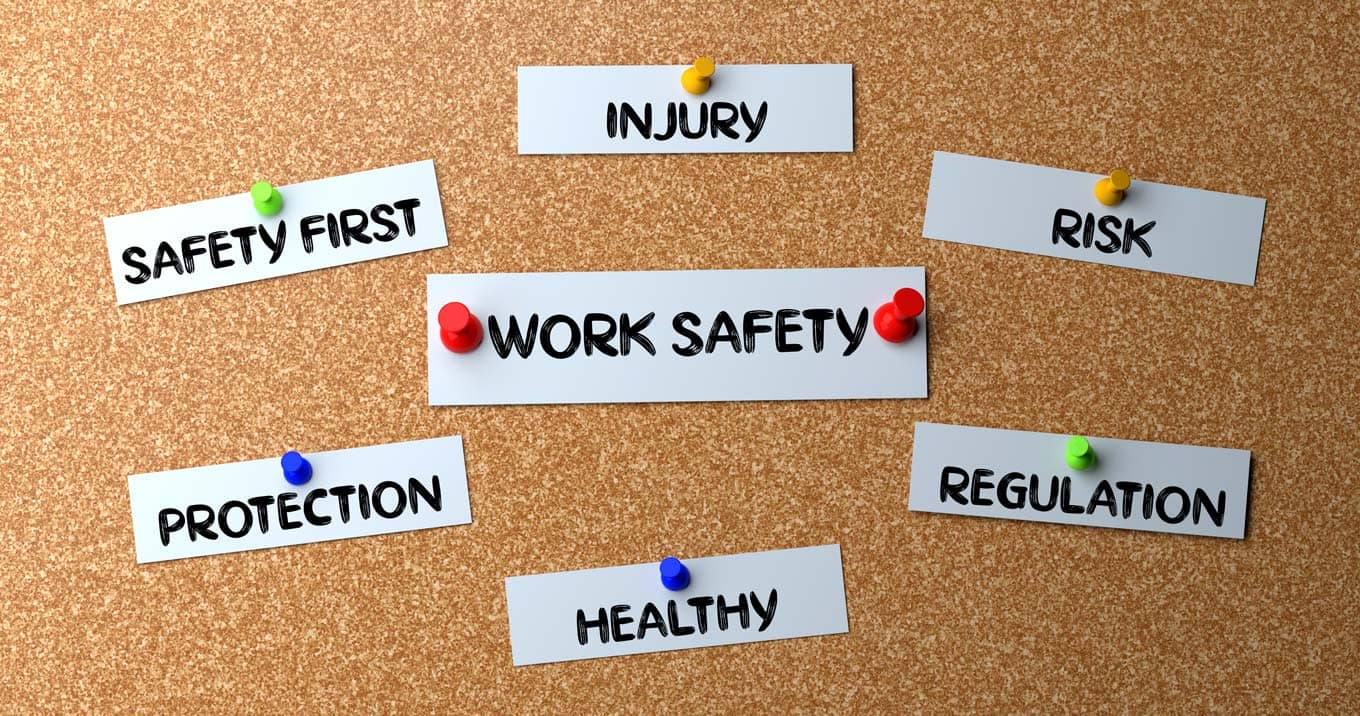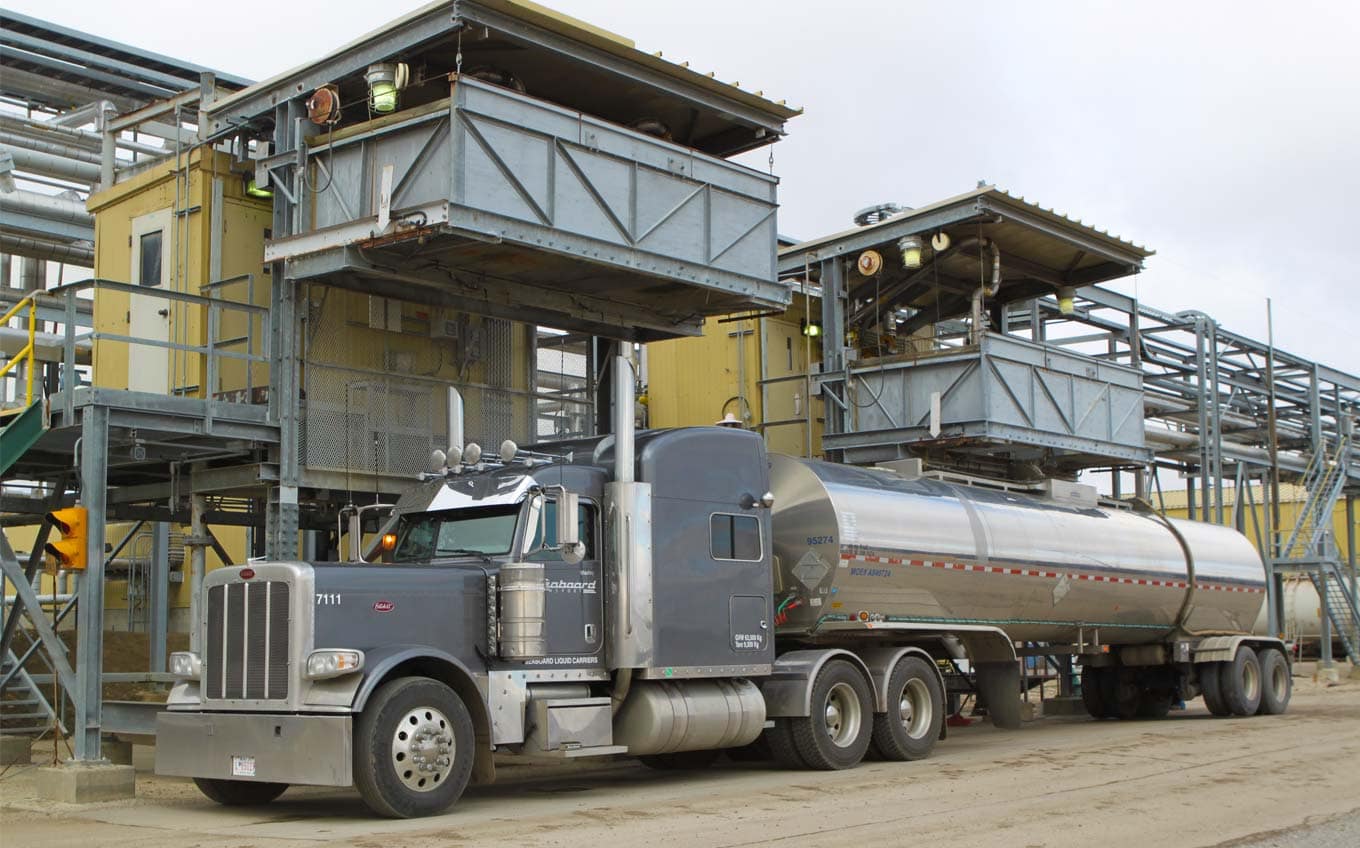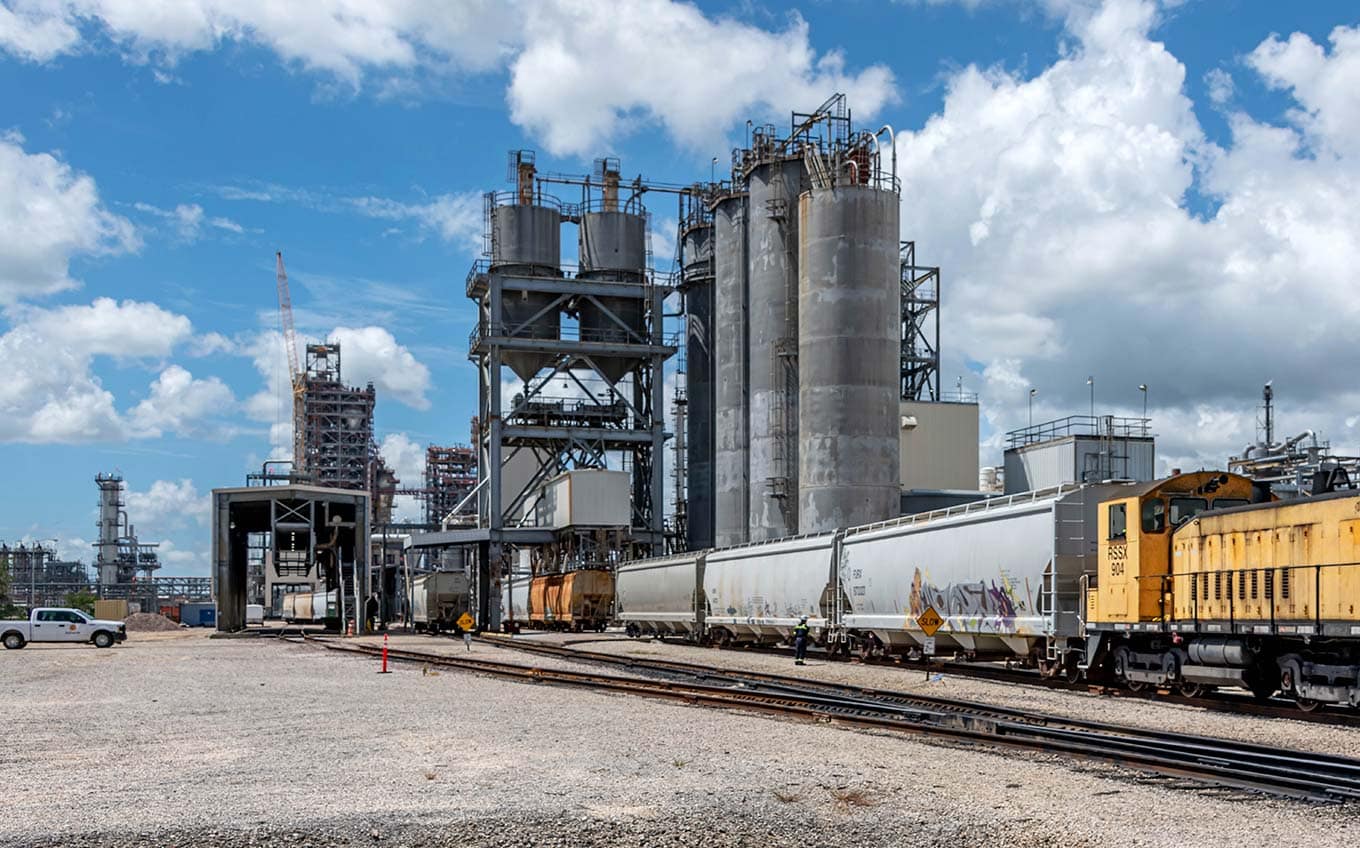What is Material Handling?
All industrial plants use material handling services of some sort. Manufacturing facilities need raw materials to make their products. Material handling crews move these materials from place to place within the facility. Generally, these commodities are in bulk quantity and may be solid or liquid.
The raw materials usually arrive at the plant through railroad, river, or pipeline. Material handling workers then move the materials through each different phase of production. Relocation may involve loading and unloading from a railcar, container, barge, or other vehicles. A transloading operation from a pipeline to a tank car may be needed. It may call for transferring bags or palettes of material.
Coordination, Control, Transfer, and Storage
One of the challenges of material handling is doing it with efficiency. Knowing how much material you have, where it is in the facility, and when you will need more is essential. Frequently a worksite will store raw materials in railcars on train tracks within the plant. Railcar switching crews will move the cars as needed for fluid control of the operation. Raw components must be carefully tracked throughout the entire process by operations management. The finished product may have to be packaged and stored in a warehouse. In the end, material handling crews load the finished product onto a vehicle for delivery.
Bulk material handling at this volume and weight is quite challenging. Various kinds of specialized equipment and procedures are needed to move bulk substances. Specific equipment, such as loading racks, are usually fixed assets installed in the facility. Other heavy equipment may include railcar movers, locomotives, forklifts, or lift tables. In addition, the job may entail belt conveyors, pneumatic conveyors, bulk bag fillers, and more. Each industry will have its own needs, so each will need a custom material handling plan.
Material Handling Safety is Essential
There is an inherent danger when people use machinery, especially industrial machinery. Specialized training and experience are paramount for worker and public safety. Following stringent OSHA regulations can be demanding in such a dynamic atmosphere. Safe transfer of materials also requires the proper equipment and equipment maintenance.

Material Handling Solutions
As you can see, there are many requirements for handling bulk material. Industrial plants have three options for material handling solutions. They may choose to do the job themselves, use contractors, or use a mix of both. Whatever solution one settles on, equipment maintenance and personnel training are essential. Equipment failure or breakdown can be detrimental to production. An accident can be expensive or even fatal. Therefore, it is critical to take proper precautions and follow regulations.
To do your material handling yourself, consider the following:
- Develop material handling plans, procedures, and safety guidelines
- Identify possible hazards
- Get the necessary equipment
- Train personnel or hire experienced personnel
- Maintain the material handling equipment and have a backup plan for critical equipment
- Set up a communication and reporting system
- Get a good insurance policy
Outsource Your Material Handling to Specialized Contractors
A less complicated solution for many plant managers is to outsource the material handling duties to a third-party contractor. Material handling service contractors can provide equipment, trained personnel, insurance, and more.
Railserve Material Handling & Logistics
Railserve provides custom material handling solutions inside a variety of industrial plants. Types of industry include Agriculture, Chemicals, Energy & Petroleum, Manufacturing, Pulp & Paper, and more. We provide best practices and detailed procedures for material handling. Our service also includes personnel, training, equipment, and insurance.
At Railserve, safety is our primary concern. We develop proprietary safety methods, training, and technology. As a result, Railserve creates a safer work environment for employees, clients, and the public. Safety is our top priority. We work about 2.7 million staff hours per year. Our safety record is outstanding, with rates well below the OSHA average. Learn more about what makes Railserve different.
Benefits You Get with Railserve Material Handling & Logistics:
- Peak efficiency
- Safe work environment
- Greater plant capacity
- Regulatory compliance
- Cost control (with possible savings)
We Manage Material Supply & Rail Yards for Better Efficiency and Plant Capacity.
Railserve has proven methods for the safe movement of bulk products. As a result, you can improve productivity and expand the plant’s capacity. Our web-based Yard Tracker software allows you and our crews to monitor every railcar in the yard. This railcar tracking software helps with effective timing and use of the rail yard. Therefore, it ensures the continuous supply of materials while avoiding demurrage charges.
Equipment, Trained Personnel, Insurance, and More
Railserve provides and maintains the necessary material handling equipment — even locomotives. Our trained personnel follow proven safety procedures to do the job well and without incident. We invest in safety technology. Experienced site leaders provide oversight, reporting, and communication with plant management.
Other Convenient Services for Industry
Railserve is well equipped to perform several other industrial services, including:
- Railcar switching
- Locomotive repairs & maintenance
- Railcar maintenance
- Railroad track construction and maintenance
- Sales or leasing of low-emission genset switching locomotives, the LEAF® Locomotive
Design and Install a Custom Material Handling Plan with Little to No Downtime.
Every worksite has its own specific needs. Therefore, we start with initial discussions about client needs and concerns. Then, a site visit is usually necessary to further analyze the situation. We then develop a customized proposal to fit their particular requirements.
Find out if Railserve Material Handling Services are right for your business. Please contact us to discuss your specific plant requirements. Call 1.800.345.7245


